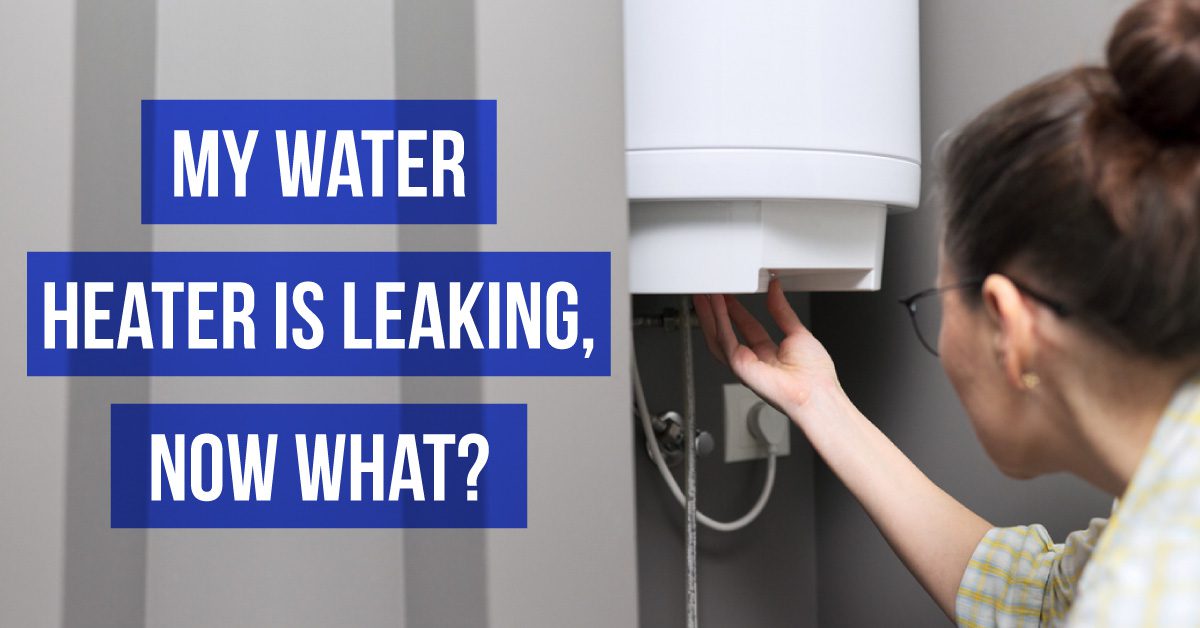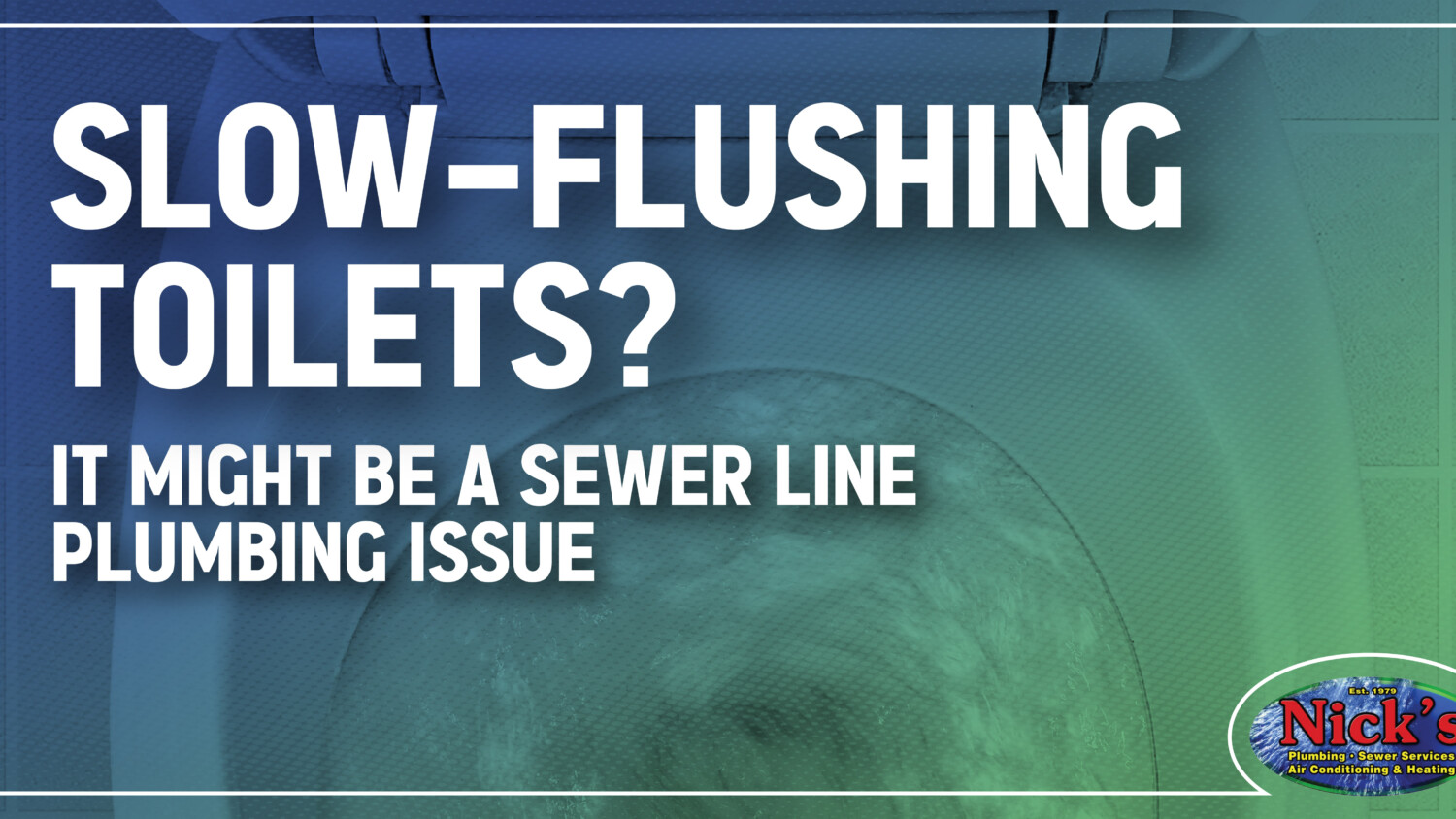There are a lot of potential horror stories lurking in every home, and I’m not talking about ghosts, demonic possessions, or that guest that doesn’t know when to leave. We’re talking about the sheer terror, panic, and misery that a leaking water heater can wreak on your home and your budget.
Tank-Type Water Heaters are a Stupid Idea.
I know it’s a bold statement from a guy who sells a lot of tank-type water heaters as part of his business plan, but it’s something that needs to be said. I mean, we’re talking about a forty-to-seventy-gallon tank of water just sitting inside your house. If you’re among the fortunate few that had their homes built by someone who had at least a lick of common sense, your water heater is probably in the garage, or an attached outdoor closet made just for the water heater.
Tank-Type Water Heaters in the Attic Take a Stupid Idea and Make it Stupider.
For the rest of us unlucky Houston homeowners, our water heaters are either in an indoor utility closet on the ground floor or in the attic. Yes, you read that correctly. Close to half of the water heaters currently heating water in Houston have been installed in the attic. Why would anyone think suspending as much as seventy gallons of water above your living space is a good idea? Simple answer: more floor space. A tank-type water heater requires about 15 – 20 square feet of floor space, and if it’s in your living area, it must be enclosed in a closet.
For some reason, home builders have decided that the optimum placement for this liquid-filled cylinder is in your attic. Water heater leaks become much more important when the end result could be seventy gallons of water on your living room floor. In that situation, the least of your worries is the cost of replacing the water heater, as you’ll be replacing ceilings, carpets, furniture, and electronics, and hopefully not throwing away family keepsakes and heirlooms.
Let’s take a deep dive into leaking water heaters and find out what we can do to prevent leaks, and how to identify new leaks before they have a chance to do any severe damage.
Is It Normal for a Water Heater to Leak?
Of course, it isn’t normal, and any indication that your water heater leaks needs to be investigated and remedied as quickly as possible. Moisture on the outside of your water heater tanks or around fittings is usually nothing more serious than a bit of condensation.
Water heaters installed in attics or garages are exposed to outdoor-like temperatures and will be more prone to forming condensation. Most tank-type water heaters have a shallow drip pan surrounding them from the bottom to collect the condensation runoff, so there’s a slight concern over sweaty water heaters.
What Causes a Water Heater to Leak?
Hard to believe but guess what your water heater’s mortal enemy is. It’s water. From the moment your water heater is installed and filled for the first time, it begins to deteriorate. If the amount of runoff in your water heater’s drip pan is more significant than usual or is causing the pan to overflow, you have a leak. The next step is to figure out where it’s coming from.
What are the Types of Water Heater Leaks?
Tank-type water heaters have several weak points that can quickly create a leak, and it’s up to your plumbing technician to determine the source. Their assessment begins at the top of the heater tank and continues to the bottom, checking for any failed components or water leakage from the tank itself.
Common Top-of-the-Tank Leak Sources
Cold Water Supply Valve
The cold water supply valve is located at the top of your water heater tank, fed by a branch of your home’s supply line from the meter. Should your water heater develop a leak, your first response should be to turn off this valve, as it will prevent any more water from entering the tank.
If the cold water supply valve is leaking, or you’re unable to turn it off –either because it’s stuck or spins freely—you’ll need to turn off the main water supply to the house.
Temperature & Pressure Relief Valve (T&P Valve)
Thanks to the laws of physics, when water is heated, it expands. Your tank-type water heater is a sealed, water-tight container, so as the water in the tank heats up, it expands, causing the internal pressure of the tank to increase as well. Any water displaced by the expansion needs to go somewhere, and if there’s no room left in the tank, it is sent out of the tank via the T&P valve.
The seals on your water heater tank have a limit as to how much internal pressure they can endure before they fail. Most tank-type water heater’s T&P valves are universally set to open if the pressure inside the tank exceeds 150 pounds per square inch (PSI) or if the water heats to above 210°F.
Temperature & Pressure Relief Valve Overflow Pipe
Attached to the T&P valve, this pipe carries any water that needs to be evacuated from the water heater tank and diverts it into the drain pan.
Hot Water Outlet Pipe
One would think that the logical placement for the hot water outlet would be at the bottom of the tank, closer to the heating elements. One would be wrong. The pipe that brings cold water into the heater tank delivers it to the bottom, where the heating elements can warm it. Remember science class? Heat rises. That’s why the hot water outlet pipe is at the top of the tank, extending to about 1/3 of the way to the bottom.
Common Bottom of the Tank Leak Sources
Drain Valve
Drain valves allow you to evacuate all water from the heater tank for regular maintenance or empty the unit for repair or replacement.
After years of heating and cooling cycles, the tank’s walls start to flex and lose some of their original shape. The drain valve is mounted on the outside wall of the tank and can work itself loose during the expansion and contraction of the tank. This can displace any pipe joints connected to the valve or loosen pipe fittings and connectors, allowing water to leak.
Sediment Build-Up
Houston is almost as well known for its hard water as it is for heat and humidity. Hard water contains trace elements of minerals. In our case, calcium and magnesium are absorbed into rain and groundwater as it passes through our limestone-rich soil. Hard water is extremely bad for glass, as those mineral elements are tiny rocks with jagged edges. As we mentioned earlier, the protective lining inside your water heater tank is a layer of compressed glass.
You can see for yourself the effect hard water has on your glassware and shower doors, and those items aren’t exposed to sediment damage twenty-four hours a day.
Leaks from Water Heater Tank Seals
Going a little further with the examples of damage that can be caused by Houston’s mineral-heavy water, as tiny cracks form in the glass layer of the tank, water escapes the tank and meets the tank’s metal shell. The weakest points on any water heater tank will be along the seams at the top and bottom of the tank, and the seam along the side of the tank, and these areas must be monitored for signs of rust that will eventually become tank leaks.
What Should I Do If My Water Heater is Leaking?
The best first reaction if you suspect a leak from your tank-type water heater is to turn off the tank’s cold water supply valve at the top. If the supply valve itself is faulty and can’t be turned off, you’ll need to turn off the main water supply for the entire house. If you have PEX pipes, you can also turn off the water heater supply at your PEX manifold.
Unfortunately, there are few do-it-yourself options for repairing a leaking water heater. When you factor in the dangers of messing with either a gas or electric power source, the potential for risk increases exponentially. You will require the help of a professional plumbing company to determine the issue with your current gas or electric water heater or to install a new water heater.
Gas Leaks and Water Heaters.
Water isn’t even the worst thing to leak from your water heater. Gas powered water heaters use either natural gas or propane for combustion are also susceptible to gas leaks. Most often, the flexible gas lines commonly used to connect service lines to gas appliances are to blame. While flex lines make appliance installation more manageable with a universal solution, their design makes them prone to developing cracks that result in gas leaks.
You need to treat a gas leak from your water heater the same way you would a gas leak anywhere else in the home. Get out of the house, leave the front door open, and from across the street, call your local gas service provider or 911 to report the leak.
Is a Leaking Water Heater a Plumbing Emergency?
Everything has an expiration date. Your water heater is no exception. How quickly it is before you reach that inevitable day depends on how well you’ve treated it over the years. A water heater installed 15 years ago that had regular annual maintenance and had necessary minor repairs kept up is in far better shape than a 5-year-old “set and forget” unit.
The severity of your water heater leak should determine whether or not it’s a true “call someone at 3:00 am” plumbing emergency, or something that can wait until morning.
Since You’re Already Installing a New Water Heater…Go Tankless!
Tankless water heater technology revolutionizes home comfort with incredible energy savings and a lifespan two times longer than tank-type units. The benefits do not stop there, as tankless water heaters require very little space, roughly a 2-foot by 4-foot space on the wall, freeing up floorspace once needed for the tank unit.
Ever wanted to turn on the shower and have instant hot water on demand?
And it would be great if you could run that hot shower for as long as you want and have endless hot water.
What if you could run every shower and sink in the house simultaneously while you have a dishwasher and a washing machine operating with your water heater meeting all that demand?
And is it too much to ask that a tankless water heater only requires regular maintenance every 2-3 years?
That’s what comes with installing a state-of-the-art tankless water heater.
Installing a tankless water heater requires minimal plumbing reconfiguration and will operate on either natural gas or electricity. When consulting with your Nick’s Plumbing technician about your new water heater, ask them if a tankless water heater would make more sense.
They are costlier than a traditional tank-type water heater, so the more it gets used, the faster the device pays for itself. If you live in a single-bathroom home with only 1 or 2 people in your household, installing a tank unit may make more financial sense.
What is the Best Way to Prevent Water Heater Leaks?
Maintenance, maintenance, and maintenance.
We ask a lot of our water heaters; they work for us twenty-four hours a day, all year round, and ask very little from us in return. Once a year, it would help if you treated your water heater to a spa day with Nick’s Plumbing’s water heater maintenance service.
Your tank-type water heater needs to be drained and flushed annually and checked thoroughly for any potential issues with various components. All external parts, gas connections, water supply and outflow pipes, valves, electrical components like thermostats and thermocouples, and the tank are inspected for any issues.
Regular water heater maintenance also allows our licensed, experienced technicians an opportunity to discover leaks or other plumbing issues early. Maintenance calls allow our techs to find a leak before it can cause thousands of dollars worth of damage to your home. That alone makes regular water heater maintenance worth its cost.
My Water Heater Might Have a Leak. What Can I Do?
First, don’t panic. Many water heater leaks are caused by a worn valve stem or loose drain valve, meaning a more straightforward –and much less expensive—repair.
Nick’s Plumbing has been installing, maintaining, and repairing water heaters in Houston since 1979. Our fully-trained, licensed, and background-checked technicians attend regular company-sponsored training with the manufacturers of the water heaters they install.
Whether we’re installing a new gas or electric Rheem, Rinnai, Bradford White, AO Smith, or any other water heater, our technicians know all about their latest features and how to best set them up for your home.
Nick’s Plumbing has been proud to provide service to our more than 200,000 customers over the last forty-four years in business. Thanks to our word-of-mouth reputation, and our online rating of 4.9 out of 5, Nick’s Plumbing is quickly becoming the busiest plumbing company in Houston.
Call Nick’s Today; We’re on the Way!


























